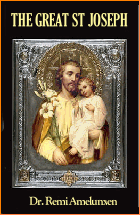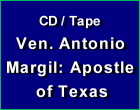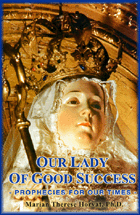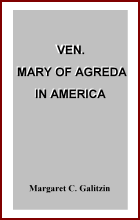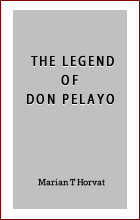American History
 |
 |
 |
 |
 |
 |
 |
Fundamental Errors of the Founding Fathers - 4
Religious Liberty in the Minds
of Jefferson & Washington
Perhaps two of the most adamant supporters of religious liberty among the Founding Fathers were Thomas Jefferson and George Washington, two friends who successfully undermined a basic principle of Catholic Civilization – the rights and authority of the Catholic Church.
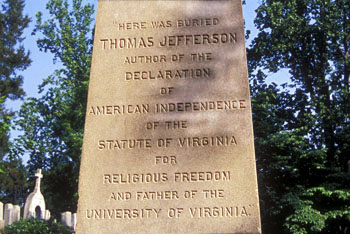
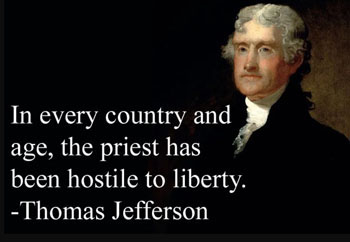 After writing the Declaration of Independence, Jefferson used his influence in Virginia, where he became the second governor in 1779. In this position, Governor Jefferson assiduously drafted the Statute of Virginia for Religious Freedom, which passed as state legislature in 1786. This Statute, being the first of its kind, was used as a basis for the First Amendment of the Constitution that protects the "right" to religious liberty.
After writing the Declaration of Independence, Jefferson used his influence in Virginia, where he became the second governor in 1779. In this position, Governor Jefferson assiduously drafted the Statute of Virginia for Religious Freedom, which passed as state legislature in 1786. This Statute, being the first of its kind, was used as a basis for the First Amendment of the Constitution that protects the "right" to religious liberty.
Jefferson was very proud of both of the documents he penned, having his tombstone engraved with the words “Author of the Declaration of American Independence, of the Statute of Virginia for Religious Freedom, and Father of the University of Virginia.”
In writing Virginia’s Statute, Jefferson explained: "Where the preamble declares, that coercion is a departure from the plan of the holy author of our religion, an amendment was proposed by inserting 'Jesus Christ,' so that it would read 'A departure from the plan of Jesus Christ, the holy author of our religion;' the insertion was rejected by the great majority, in proof that they meant to comprehend, within the mantle of its protection, the Jew and the Gentile, the Christian and Mohammedan, the Hindoo [sic] and Infidel of every denomination.” (1)
A champion of tolerance & freedom of conscience
Jefferson's stance on religious liberty was not limited to the Statute, for he always vehemently opposed any type of "religious tyranny" and ardently supported freedom of conscience, as is evident in the following quotes:
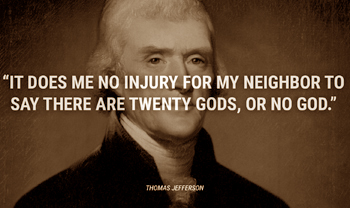
It is apparent that Jefferson, who had no concern for the salvation of souls, held Liberty dearer than Truth itself. Yet, though he professed freedom of religion, this liberty only applies to those whose consciences dictate tolerance and relativism. A person whose conscience forces him to defend the truth of the Catholic Church and Catholic Civilization could not be given freedom of conscience since Jefferson’s goal is to be free of such people in this new nation.
An ally for religious liberty: 'the old fox' Washington
An unlikely friend of Jefferson was George Washington, the “old fox” who has deceived the world into thinking he was a "good Christian." Most of our readers must be familiar with the famous painting of George Washington kneeling in the woods, decked in his war apparel, presumably beseeching God to bless the Revolution.
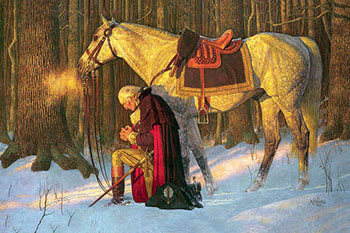
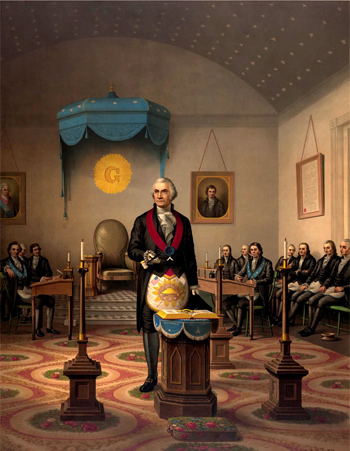 The real George Washington has nothing to do with this Protestant myth, for he refused to ever kneel in church and never confessed belief in Our Lord Jesus Christ. (9) Jefferson affirms this in his Autobiography entry for February 1:
The real George Washington has nothing to do with this Protestant myth, for he refused to ever kneel in church and never confessed belief in Our Lord Jesus Christ. (9) Jefferson affirms this in his Autobiography entry for February 1:
“Feb. 1. Dr. Rush tells me that he had it from Asa Green that when the clergy addressed Genl. Washington on his departure from the govt., it was observed in their consultation that he had never on any occasion said a word to the public which showed a belief in the Xn [Christian] religion and they thot they should so pen their address as to force him at length to declare publicly whether he was a Christian or not. They did so.
"However he observed the old fox was too cunning for them. He answered every article of their address particularly except that, which he passed over without notice. Rush observes he never did say a word on the subject in any of his public papers except in his valedictory letter to the Governors of the States when he resigned his commission in the army, wherein he speaks of the benign influence of the Christian religion. I know that Gouverneur Morris, who pretended to be in his secrets & believed himself to be so, has often told me that Genl. Washington believed no more of that system than he himself did.” (10)
With this in mind, it is no wonder that George Washington was an advocate of religious liberty. An organization founded in 2009, the George Washington Institute for Religious Liberty, documents well the evidence for the first President’s beliefs.
Throughout the course of his Presidency, Washington addressed several different religious leaders and organizations, promising to uphold their rights to believe as they wished. The reader may find George Washington’s plethora of letters to various religious institutions here.
Shortly after his election, President Washington, accompanied by Thomas Jefferson, delivered one of his most notable letters in person to the Jews of Rhode Island. Washington’s “Letter to the Hebrew Congregation of Newport, Rhode Island” states the following:
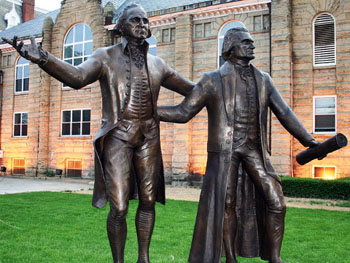 “It is now no more that toleration is spoken of as if it were the indulgence of one class of people that another enjoyed the exercise of their inherent natural rights, for, happily, the Government of the United States, which gives to bigotry no sanction, to persecution no assistance, requires only that they who live under its protection should demean themselves as good citizens in giving it on all occasions their effectual support ...
“It is now no more that toleration is spoken of as if it were the indulgence of one class of people that another enjoyed the exercise of their inherent natural rights, for, happily, the Government of the United States, which gives to bigotry no sanction, to persecution no assistance, requires only that they who live under its protection should demean themselves as good citizens in giving it on all occasions their effectual support ...
"May the children of the stock of Abraham who dwell in this land continue to merit and enjoy the good will of the other inhabitants – while every one shall sit in safety under his own vine and fig tree and there shall be none to make him afraid. May the father of all mercies scatter light, and not darkness, upon our paths, and make us all in our several vocations useful here, and in his own due time and way everlastingly happy.” (11)
Before his visit, the Jews had written Washington a letter penned by an influential Jew, Moses Seixas, which bemoaned their former deprivations of their rights as citizens, and praised the new Government "without bigotry," affording "Liberty of conscience" to all.
"This so ample and extensive Federal Union whose basis is philanthropy, mutual confidence and public virtue," Seixas concluded, "we cannot but acknowledge to be the work of the Great God, who ruleth in the Armies of Heaven, and among the inhabitants of the Earth, doing whatever seemeth him good. (12)
Moses Sexias was a Jewish Freemason, a member of the same lodge as Washington; thus the two shared a brotherhood. He later rose to the degree of Deputy Grand Master for two years, and finally on June 22, 1802, Seixas was elected Grand Master at the Grand Lodge of Free and Accepted Masons of Rhode Island’s annual meeting. (13)
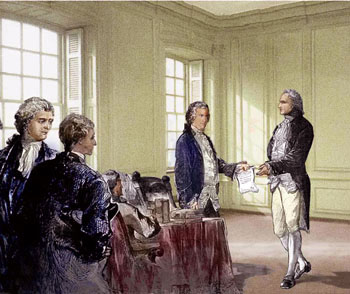 For those who still believe that the Founding of America was Catholic, let them study well the above letter. The Jewish sect has never aligned itself with any Christian government, but has rather always fought to undermine the Catholic Church and her influence on society, as demonstrated in Msgr. Delassus’ excellent work Americanism and The Anti-Christian Conspiracy. For this reason, a Catholic should take caution in supporting a Government that a leading Jew acknowledges as the work of “the Great God.”
For those who still believe that the Founding of America was Catholic, let them study well the above letter. The Jewish sect has never aligned itself with any Christian government, but has rather always fought to undermine the Catholic Church and her influence on society, as demonstrated in Msgr. Delassus’ excellent work Americanism and The Anti-Christian Conspiracy. For this reason, a Catholic should take caution in supporting a Government that a leading Jew acknowledges as the work of “the Great God.”
The compliment is especially revealing because it is spoken by a fellow Freemason. George Washington did not attempt to conceal his complete adhesion to that secret society enemy of the Church. In a letter to the Masons of King David’s Lodge in Newport, Rhode Island he writes: “Being persuaded that a just application of the principles, on which the masonic fraternity is founded, must be promotive of private virtue and public prosperity, I shall always be happy to advance the interests of the Society, and to be considered by them a deserving Brother.”
Religious liberty has always been one of the “interests” of Freemasonry, for above all other errors this Secret Society promotes, religious liberty does the most to belittle and suppress the Catholic Church, whose mission is to the conquer the world for Our Lord Jesus Christ. Freedom of religion gives license to godlessness and takes away the rights of true religion, as Pope Gregory XVI prophetically foresaw in 1832:
“So the restraints of religion are thrown off, by which alone kingdoms stand. We see the destruction of public order, the fall of principalities, and the overturning of all legitimate power approaching. Indeed this great mass of calamities had its inception in the heretical societies and sects in which all that is sacrilegious, infamous, and blasphemous has gathered as bilge water in a ship’s hold, a congealed mass of all filth.” (14)
To be continued


Jefferson’s tomb, a proud defender of religious liberty & open enemy of priests & the Catholic Church

Jefferson was very proud of both of the documents he penned, having his tombstone engraved with the words “Author of the Declaration of American Independence, of the Statute of Virginia for Religious Freedom, and Father of the University of Virginia.”
In writing Virginia’s Statute, Jefferson explained: "Where the preamble declares, that coercion is a departure from the plan of the holy author of our religion, an amendment was proposed by inserting 'Jesus Christ,' so that it would read 'A departure from the plan of Jesus Christ, the holy author of our religion;' the insertion was rejected by the great majority, in proof that they meant to comprehend, within the mantle of its protection, the Jew and the Gentile, the Christian and Mohammedan, the Hindoo [sic] and Infidel of every denomination.” (1)
A champion of tolerance & freedom of conscience
Jefferson's stance on religious liberty was not limited to the Statute, for he always vehemently opposed any type of "religious tyranny" and ardently supported freedom of conscience, as is evident in the following quotes:

Jefferson showed a complete indifference to religion, insisting all should be treated equally
- "Millions of innocent men, women and children, since the introduction of Christianity, have been burnt, tortured, fined and imprisoned; yet we have not advanced one inch towards uniformity. What has been the effect of coercion? To make one half the world fools, and the other half hypocrites. To support roguery and error all over the earth." (2)
- "I never will by any word or act, bow to the shrine of intolerance. I never had an opinion in politics or religion which I was afraid to own; a reserve on these subjects might have procured me more esteem from some people, but less from myself." (3)
- "Religion is well supported; of various kinds, indeed, but all good enough; all sufficient to preserve peace and order: They [Pennsylvania and New York] are not more disturbed with religious dissensions. On the contrary, their harmony is unparalleled, and can be ascribed to nothing but their unbounded tolerance, because there is no other circumstance in which they differ from every nation on earth. They have made the happy discovery, that the way to silence religious disputes is to take no notice of them. Let us too give this experiment fair play, and get rid, while we may, of those tyrannical laws." (4)
- "Believing with you that religion is a matter which lies solely between man and his God, that he owes account to none other for his faith or his worship, that the legislative powers of government reach actions only, and not opinions, I contemplate with sovereign reverence that act of the whole American people which declared that their legislature should 'make no law respecting an establishment of religion, or prohibiting the free exercise thereof,' thus building a wall of separation between church and state." (5)
- "I am for freedom of religion, and against all maneuvers to bring about a legal ascendancy of one sect over another." (6)
- "In our early struggles for liberty, religious freedom could not fail to become a primary object." (7)
- "On the contrary, we are bound, you, I, and everyone, to make common cause, even with error itself, to maintain the common right of freedom of conscience." (8)
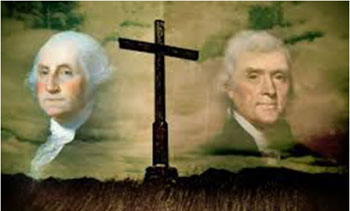
The myth of the ‘Christian’ founders dominates,
but is not based in reality
It is apparent that Jefferson, who had no concern for the salvation of souls, held Liberty dearer than Truth itself. Yet, though he professed freedom of religion, this liberty only applies to those whose consciences dictate tolerance and relativism. A person whose conscience forces him to defend the truth of the Catholic Church and Catholic Civilization could not be given freedom of conscience since Jefferson’s goal is to be free of such people in this new nation.
An ally for religious liberty: 'the old fox' Washington
An unlikely friend of Jefferson was George Washington, the “old fox” who has deceived the world into thinking he was a "good Christian." Most of our readers must be familiar with the famous painting of George Washington kneeling in the woods, decked in his war apparel, presumably beseeching God to bless the Revolution.

In fact, Washington never knelt in prayer, but he often donned his masonic apron

“Feb. 1. Dr. Rush tells me that he had it from Asa Green that when the clergy addressed Genl. Washington on his departure from the govt., it was observed in their consultation that he had never on any occasion said a word to the public which showed a belief in the Xn [Christian] religion and they thot they should so pen their address as to force him at length to declare publicly whether he was a Christian or not. They did so.
"However he observed the old fox was too cunning for them. He answered every article of their address particularly except that, which he passed over without notice. Rush observes he never did say a word on the subject in any of his public papers except in his valedictory letter to the Governors of the States when he resigned his commission in the army, wherein he speaks of the benign influence of the Christian religion. I know that Gouverneur Morris, who pretended to be in his secrets & believed himself to be so, has often told me that Genl. Washington believed no more of that system than he himself did.” (10)
With this in mind, it is no wonder that George Washington was an advocate of religious liberty. An organization founded in 2009, the George Washington Institute for Religious Liberty, documents well the evidence for the first President’s beliefs.
Throughout the course of his Presidency, Washington addressed several different religious leaders and organizations, promising to uphold their rights to believe as they wished. The reader may find George Washington’s plethora of letters to various religious institutions here.
Shortly after his election, President Washington, accompanied by Thomas Jefferson, delivered one of his most notable letters in person to the Jews of Rhode Island. Washington’s “Letter to the Hebrew Congregation of Newport, Rhode Island” states the following:

The two friends shared the same aims regarding a State founded on religious liberty
"May the children of the stock of Abraham who dwell in this land continue to merit and enjoy the good will of the other inhabitants – while every one shall sit in safety under his own vine and fig tree and there shall be none to make him afraid. May the father of all mercies scatter light, and not darkness, upon our paths, and make us all in our several vocations useful here, and in his own due time and way everlastingly happy.” (11)
Before his visit, the Jews had written Washington a letter penned by an influential Jew, Moses Seixas, which bemoaned their former deprivations of their rights as citizens, and praised the new Government "without bigotry," affording "Liberty of conscience" to all.
"This so ample and extensive Federal Union whose basis is philanthropy, mutual confidence and public virtue," Seixas concluded, "we cannot but acknowledge to be the work of the Great God, who ruleth in the Armies of Heaven, and among the inhabitants of the Earth, doing whatever seemeth him good. (12)
Moses Sexias was a Jewish Freemason, a member of the same lodge as Washington; thus the two shared a brotherhood. He later rose to the degree of Deputy Grand Master for two years, and finally on June 22, 1802, Seixas was elected Grand Master at the Grand Lodge of Free and Accepted Masons of Rhode Island’s annual meeting. (13)

Freemason Moses Sexias welcomes his ‘brother’ Washington at Newport
The compliment is especially revealing because it is spoken by a fellow Freemason. George Washington did not attempt to conceal his complete adhesion to that secret society enemy of the Church. In a letter to the Masons of King David’s Lodge in Newport, Rhode Island he writes: “Being persuaded that a just application of the principles, on which the masonic fraternity is founded, must be promotive of private virtue and public prosperity, I shall always be happy to advance the interests of the Society, and to be considered by them a deserving Brother.”
Religious liberty has always been one of the “interests” of Freemasonry, for above all other errors this Secret Society promotes, religious liberty does the most to belittle and suppress the Catholic Church, whose mission is to the conquer the world for Our Lord Jesus Christ. Freedom of religion gives license to godlessness and takes away the rights of true religion, as Pope Gregory XVI prophetically foresaw in 1832:
“So the restraints of religion are thrown off, by which alone kingdoms stand. We see the destruction of public order, the fall of principalities, and the overturning of all legitimate power approaching. Indeed this great mass of calamities had its inception in the heretical societies and sects in which all that is sacrilegious, infamous, and blasphemous has gathered as bilge water in a ship’s hold, a congealed mass of all filth.” (14)
To be continued
- Thomas Jefferson, "The Virginia Legislature, Review and Reform of the Law," in Autobiography.
- Thomas Jefferson, "Religion" in Notes on the State of Virginia (1782), p. 286.
- Thomas Jefferson the Freethinker.
- Thomas Jefferson,"Religion" in Notes on the State of Virginia (1782), p. 287.
- Letter of Thomas Jefferson to the Danbury Baptist Association, Connecticut, January 1, 1802.
- Letter of Thomas Jefferson to Elbridge Gerry, 1799.
- Letter of Thomas Jefferson to Baltimore Baptists, 1808.
- Letter to Edward Dowse, April 19, 1803.
- Stewart, Matthew. “Nature’s God: The Heretical Origins of the American Republic.” United States: W. W. Norton & Company, 2014. Print.
- https://oll.libertyfund.org/titles/jefferson-the-works-vol-1-autobiography-anas-1760-1770/simple
- https://www.gwirf.org/washingtons-letter-to-the-hebrew-congregation-of-newport-rhode-island/
- https://www.gwirf.org/moses-seixas-letter-to-president-george-washington/
- https://www.mountvernon.org/library/digitalhistory/digital-encyclopedia/article/moses-seixas/
- Mirari Vos - Papal Encyclicals

Posted September 14, 2022
______________________
______________________



